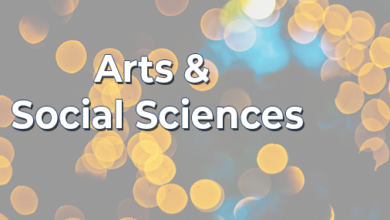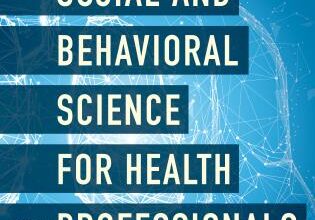Top 10 Best Nursing Courses to Study in the USA
Starting a nursing career in the USA requires a strategic choice of the right educational path.
This article offers a comprehensive guide for aspiring nurses, highlighting programs renowned for their quality, curriculum, and career outcomes.
From diverse specializations to accreditation standards, this guide aims to assist prospective students in making informed decisions.
We delve into the intricacies of each program, considering factors such as curriculum structures, career opportunities, and the overall reputation of nursing schools.
Join us as we navigate the landscape of nursing education, providing valuable insights for a successful and fulfilling career in healthcare.
Also Read:
Top 10 Best Nursing Courses to Study in the USA
1. Bachelor of Science in Nursing (BSN)
The BSN is a foundational program that equips students with a comprehensive understanding of nursing principles.
It focuses on both theoretical knowledge and practical skills, preparing graduates for entry-level nursing positions.
Many top nursing schools offer BSN programs with a strong emphasis on evidence-based practice, critical thinking, and leadership skills.
2. Master of Science in Nursing (MSN)
An MSN is an advanced degree that provides specialized knowledge in various nursing fields.
It allows nurses to specialize in areas such as nurse education, nurse administration, or advanced practice roles like nurse practitioner or clinical nurse specialist.
MSN programs are designed for registered nurses seeking to advance their careers and take on leadership roles in healthcare.
3. Doctor of Nursing Practice (DNP)
The DNP is a terminal degree in nursing practice, emphasizing clinical expertise and leadership.
DNP programs are suitable for nurses aspiring to become advanced practice nurses or healthcare executives.
The curriculum often includes advanced clinical training, research, and healthcare policy, preparing graduates for roles at the highest level of nursing practice.
4. Accelerated BSN Programs
Geared towards individuals who already hold a bachelor’s degree in another field, accelerated BSN programs provide a fast-track route to a nursing career.
These programs condense the traditional BSN coursework into an intensive timeframe, allowing career changers to transition into nursing more quickly.
5. Pediatric Nursing Programs
Specialized programs in pediatric nursing focus on the unique healthcare needs of children.
These programs prepare nurses to work in pediatric hospitals, clinics, and other settings where specialized care for infants, children, and adolescents is required.
Pediatric nursing courses cover topics like growth and development, pediatric diseases, and family-centered care.
6. Family Nurse Practitioner (FNP) Programs
FNPs play a crucial role in primary care, providing comprehensive healthcare to individuals of all ages.
FNP programs equip nurses with the knowledge and skills needed to assess, diagnose, and treat a wide range of health conditions.
Graduates often work in clinics, private practices, and community health settings.
7. Psychiatric-Mental Health Nurse Practitioner (PMHNP) Programs
As mental health awareness grows, so does the demand for psychiatric-mental health nurse practitioners.
PMHNP programs focus on the assessment and treatment of mental health disorders.
Graduates are prepared to work in psychiatric hospitals, community mental health centers, and private practices.
8. Neonatal Nurse Practitioner (NNP) Programs
NNP programs cater to nurses interested in specializing in the care of newborns, especially those born prematurely or with complex health issues.
The coursework covers neonatal assessment, developmental care, and advanced interventions.
NNPs often work in neonatal intensive care units (NICUs) and collaborate with healthcare teams to ensure optimal outcomes for newborns.
9. Nursing Informatics Programs
With the increasing reliance on technology in healthcare, nursing informatics programs are gaining popularity.
These programs combine nursing expertise with information technology, preparing nurses to manage and analyze healthcare data, implement electronic health records, and enhance the overall efficiency of healthcare delivery.
10. Public Health Nursing Programs
Public health nursing programs focus on preparing nurses to address community health needs.
Courses cover topics such as epidemiology, health promotion, and disease prevention.
Public health nurses work in diverse settings, collaborating with communities to improve health outcomes and reduce health disparities.
Overall, the top 10 nursing courses in the USA offer a diverse range of options for individuals at various stages of their nursing careers.
Whether you’re starting with a BSN or pursuing an advanced practice role through an MSN or DNP, the nursing education landscape provides opportunities for specialization and leadership in the dynamic field of healthcare.
As you explore these programs, consider your career goals, interests, and the unique strengths each program offers to make an informed decision that aligns with your aspirations.
Frequently Asked Questions (FAQ)
Which Nursing Course Has the Highest Salary?
Among nursing courses, those with the highest salary potential are typically Advanced Practice Registered Nurse (APRN) roles, such as Nurse Practitioners (NPs), Nurse Anesthetists (CRNAs), and Nurse Midwives.
Specialized fields like Certified Registered Nurse Anesthetists often command higher salaries due to their advanced skills and responsibilities.
Salaries can vary based on factors like location, experience, and specific healthcare organizations, but these APRN roles generally offer some of the highest earning potentials within the nursing profession.
What Type of Nurse Is the Most in Demand?
Nurse practitioners (NPs) are currently among the most in-demand nursing professionals.
Their advanced education and training enable them to provide a wide range of healthcare services, often taking on responsibilities traditionally handled by physicians.
With a focus on preventive care and a growing emphasis on healthcare accessibility, NPs are sought after in various specialties, including primary care, family medicine, and specialized areas like gerontology and psychiatry.
The demand for nurse practitioners is driven by the need for efficient and patient-centered healthcare delivery, making them integral contributors to modern healthcare teams.
Is Nursing a High-Paying Job in the USA?
Yes, nursing can be a high-paying profession in the USA. Registered Nurses (RNs) earn competitive salaries, and specialized roles like Nurse Practitioners (NPs), Nurse Anesthetists (CRNAs), and Nurse Midwives often command even higher incomes.
Factors such as experience, education level, location, and the demand for specific specialties influence nurse salaries.
With the growing demand for healthcare professionals and the increasing recognition of the vital role nurses play, the earning potential in the nursing field remains strong, making it an attractive and financially rewarding career path in the United States.
Conclusion
Selecting the right nursing course is paramount for a successful and fulfilling career in healthcare.
The “Top 10 Best Nursing Courses to Study in the USA” provides a comprehensive guide to navigating the diverse landscape of nursing education.
Whether pursuing a foundational Bachelor of Science in Nursing (BSN) or aiming for advanced practice through a Doctor of Nursing Practice (DNP), this list offers insights into programs that excel in curriculum, specialization, and career outcomes.
By considering individual aspirations, preferences, and the unique strengths of each program, aspiring nurses can make informed choices that pave the way for a rewarding and impactful professional journey.






